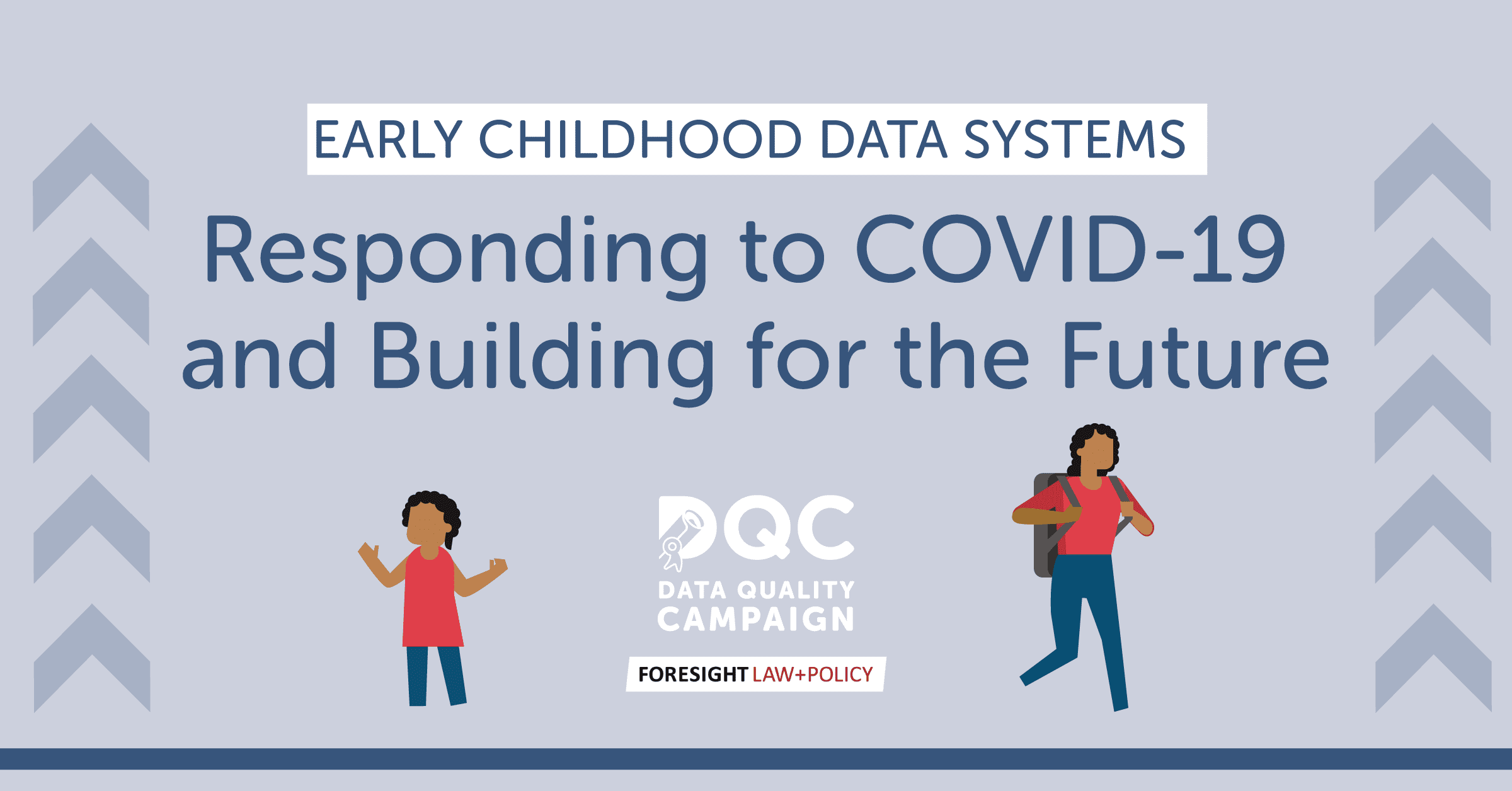New report details improvements to early childhood data systems that state education leaders must make to benefit communities
WASHINGTON (June 11, 2020) – For early childhood education to succeed in the post-COVID-19 era, states will need improved data systems that can meet the evolving needs of families, educators, and policymakers. However, many states are navigating the early childhood space without the data they need. As state leaders navigate the pandemic and recovery, states can benefit from building or rebuilding their early childhood data systems to ensure that they have robust data that helps them understand what local early childhood services are available and focus resources to help families access those services.
A new report from the Data Quality Campaign (DQC) and Foresight Law + Policy, “Early Childhood Data Systems: Responding to COVID-19 and Building for the Future,” explains that state leaders need early childhood data systems to understand which families are receiving services and make decisions about where to focus early childhood resources and efforts. These efforts should include an early childhood data infrastructure that is connected to larger P–20W data systems to allow leaders to understand the full picture of student success.
“When leaders have access to high-quality early childhood data, they can make sure families are receiving the services they need. Yet there are too many gaps in the available data—and for too many children, we don’t know where or if they’re receiving early education,” said DQC President and CEO Jennifer Bell-Ellwanger. “State leaders can and should take action to improve states’ data systems so that they have critical early childhood data to inform their policy decisions.”
The need for early childhood data is not new to the pandemic and recovery. State and local leaders need timely data to make sure early childhood services are available where families need them and that families are able to access those services. COVID-19 has created a sense of urgency around addressing these issues.
“States and communities always need robust early childhood data—not just during a crisis—to provide better and more efficient service to children and families,” said Elliot Regenstein, partner at Foresight Law + Policy and author of the report. “State and federal policymakers can improve child and family outcomes by improving state data systems.”
In the report, DQC and Foresight Law + Policy recommend that state and federal policymakers consider the following:
- Improving state data systems requires thinking systemically, engaging the community, and prioritizing speed to ensure information is timely and accessible.
- Data infrastructure must be part of any conversation about the future of early childhood systems, and state leaders should connect the work to broader education data initiatives, create and sustain a focused work group paying attention to early childhood data issues, support community-level data initiatives, and leverage preschool development grants through the Preschool Development Grant Birth through Five (PDG-B5) federal grant program, for which 23 states were recently renewed.
- Federal efforts should include dedicated funding for early learning data systems, allow flexibility in PDG-B5 implementation to account for changed conditions, and help Head Start become a part of state early childhood data systems.
Click here to read the full report on the Data Quality Campaign’s website.
###
Contact: Blair Mann, bmann@dataqualitycampaign.org, 610-724-5914
About the Data Quality Campaign
The Data Quality Campaign is a nonprofit policy and advocacy organization leading the effort to bring every part of the education community together to empower educators, families, and policymakers with quality information to make decisions that ensure that students excel. For more information, go to dataqualitycampaign.org and follow us on Facebook and Twitter (@EdDataCampaign).
About Foresight Law + Policy
Foresight Law + Policy is a national education law firm based in Washington, D.C. Our lawyers and other professionals counsel education leaders, nonprofit organizations and companies working to strengthen public education and prepare all kids for success.


